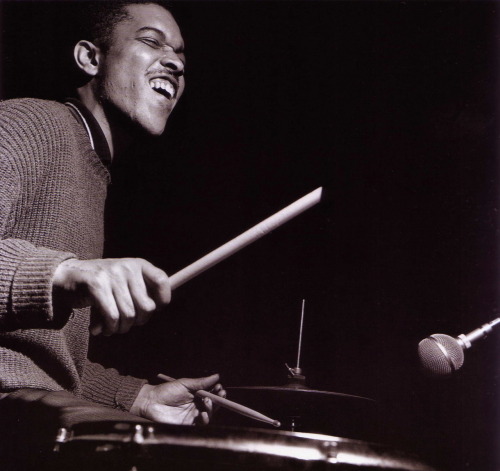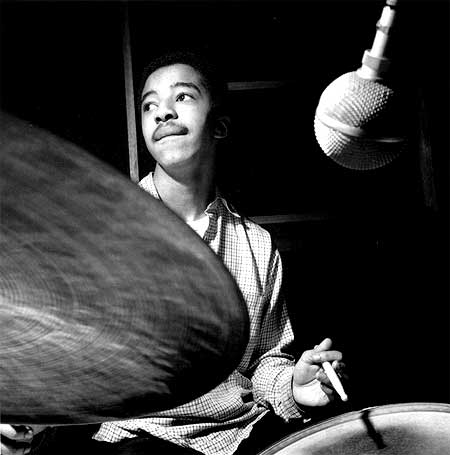 |
| She really is a boss |
Food For Thought
This series of posts is all about trying to approach music in a new way. In my last post in Food for Thought, I discussed some alternate possibilities to always playing head-solo-head. In today's post I am going try to get some inspiration from a source entirely outside of the world of music.
The Rules of Improvisation
My wife (an improv enthusiast and the source of the link to the left) and I sometimes have conversations about the similarities between improv comedy and improvised music. So today's ideas come from these conversations as well as a somewhat unexpected source, Tina Fey's new book "Bossypants". The entire book is hilarious, but the thing that really caught my attention were her "rules of improvisation". I will share these rules with you and try to highlight how these same rules apply to jazz drumming.
1. Always Agree
The underlying idea to this rule is that in order for improv to work, you have to "respect what your partner has created". This builds up a foundation of trust so that a group can work together and create something.
 |
| Our man Higgins |
When I think of drummers who could "always agree" and uplift a band with their beautiful attitude, Billy Higgins springs to mind. This man was a living example of "always agreeing", and this ability of his allowed him to play a stunning range of music, from straight-ahead to avant-garde and everything in between.
2. Not Only Say "Yes", But "Yes, And"
The principle here is essentially, "don't be afraid to contribute". To "respect what your partner has created", doesn't mean that you slavishly parrot everything that they do. The beauty of improv comes from the interaction of contributing members, so if you aren't adding anything you are a burden on the process.
 |
| Fearless |
If you think of jazz as a conversation, just imagine a conversation where one person says something and then the other person just repeats it back to them. Is this even really a conversation at all? If you don't have the confidence to speak with your unique voice, you won't ever get the real pleasure of conversation which comes from a balance of listening and speaking.
3. Make Statements
This rule is related to the last in the sense that it about confidence and being willing to make a unique contribution. In the world of improv it is important to not just ask questions, but to actually say something. As Tina puts it, "Instead of saying "Where are we?" make a statement like "Here we are in Spain, Dracula." Being willing to make statements is a risk, but it is part of the responsibility of creating something as a group.
Of course in jazz the same dynamic applies. If you are always waiting for someone else to take a risk or move in a particular direction by making a clear statement, you are not only reducing your own role, but also forcing other people to pick up your slack. Have you ever played with someone who didn't seem to have anything to say and relied on you to do everything? In my experience, playing with someone like this makes for some truly horrible music, it can feel like biking uphill. Again, making a statement is about contributing your own voice not only because you have something to say, but because this takes some of the pressure off of everyone else. Remember, jazz is a group endeavor.
One of my favorite risk takers in action, check out Tony Williams moving to double time unexpectedly around :50!
4. There Are No Mistakes, Only Opportunities
This is a really powerful and liberating idea in both improv and jazz. The key here is not that you will never play something that you didn't intend, in fact the more risks you take the more likely it is that something like this will happen. The key is how you deal with this unintended thing. As Tina says, "In improv there are no mistakes, only beautiful happy accidents. And many of the world's greatest discoveries have been by accident."
 |
| Wisdom from Miles |
This rule reminds me strongly of something Miles Davis said about jazz, "It's not the note you play that's the wrong note - it's the note you play afterwards that makes it right or wrong." The idea here is that how you frame a mistake is what makes it a mistake or not. It is like a self-fulfilling prophecy. If you treat the wrong note as a mistake, it will become a mistake. If you treat it as an unexpected surprise with actual musical potential, that is what it will be.
Hi Andrew, thanks so much for the great article and lesson above. There really is a paucity of articles touching on the conceptual / psychological aspect of drumming (which IMO is far more important than many realise) on the net, and yours truly hits the nail on the head. Thanks again for the great read!
ReplyDeleteThank you so much for the feedback, I really appreciate it! I agree with you about the importance of the internal processes of music, and also the lack of good resources on the net.
DeleteHi Andrew,
ReplyDeleteAs an actor & a drummer I know these improv rules to be very true!
Keep up the excellent blog! One of the best educational drumming blogs I've seen!
Your enthusiasm and clarity is refreshing.
well done & thanks!
That really means a lot to me, thanks for checking out the blog!
Delete